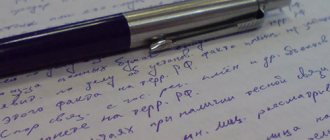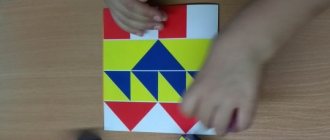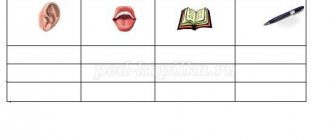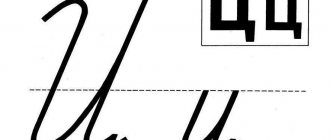Speech therapy planning
Create your teacher website PC and PPC courses Video lessons Olympiad Webinars for teachers
- home
- Speech therapy
- Planning
Watch and download free lessons, tests, notes, presentations and other useful materials on speech therapy for teachers and students. In this section you can get planning for speech therapy .
- All 4358
- Lessons 1416
- Presentations 616
- Tests 19
- Planning 193
- Events 307
- Other 1807
- All classes
- For preschoolers
- 1 class
- 2nd grade
- 3rd grade
- 4th grade
- 5th grade
- 6th grade
- 9th grade
| Working with parents This plan is necessary to involve parents in active participation in the correction process to overcome a speech defect in a child... 10.19.2021 Teryaeva Marina Vladimirovna 99 0 |
| Work program “Speech therapy warm-up for 1st grade students with disabilities” Speech therapy warm-up is a comprehensive technique that includes means of speech therapy, music-rhythmic and physical education. Its basis is speech, music and movement. 12.12.2021 Tsypushtanova Klavdiya Stepanovna 43 1 |
| Project “Teaching reading to preschoolers with special needs development” Children with general speech underdevelopment have a number of specific difficulties in learning to read and write. The development of the project makes it possible to most effectively carry out work on teaching reading to preschoolers with SLD.... 12/16/2021 Ryzhova Natalia Alekseevna 30 0 |
| “Correctional speech therapy course for students with ASD” This material is implemented for students with ASD in correctional speech therapy classes. All material is selected based on the principle “Learn by playing”... 01.11.2021 Tsypushtanova Klavdiya Stepanovna 123 3 |
Work program of correctional speech therapy training to overcome NVONR in 1st grade students Work program of correctional speech therapy training to overcome general speech underdevelopment (III-IV level of speech… 10.12.2021 Buchminskaya Irina Vladimirovna 195 17 |
| ADAPTED WORKING PROGRAM OF THE EDUCATIONAL SUBJECT “Speech Therapy” for 3rd grade students with mental retardation (intellectual impairment) The goal of the program is the correction of defects in oral and written speech of students, facilitating successful adaptation in educational activities…. 09.21.2021 Klimenko Vera Vasilievna 267 17 |
| Program “Special Child” Planning For the school year for speech therapists working with special children…. 07/14/2021 Tyutikova Yulia Vladimirovna 387 14 |
| Work plan for self-education General topic of self-education__“Development of speech creativity in older preschoolers with general speech underdevelopment using innovative techniques using... 06/03/2021 Belyanskaya Natalya Andreevna 250 4 |
| “domestic birds” Explain to your child that a person keeps birds called pets. A person takes care of them, feeds them, and oh... 02/23/2021 Eleusizova Zhania Muratbekovna 181 0 |
| Adapted work program of individual speech therapy classes for correcting sound pronunciation for children with disabilities 1 additional - 5 classes Adapted work program of individual speech therapy classes for correcting sound pronunciation for children with disabilities 1 additional. — 5 classes. This material may be useful for speech therapy teachers... 06/21/2021 Bulganina Natalya Nikolaevna 792 59 |
| Corrective and developmental program for children with mental retardation Learn to look at an object that is constantly in one place (chandelier, window, door), in response to the question “Where?” When asked to “Give”, teach to give back a toy that... 12/20/2020 Karpenko Diana Nikolaevna 396 11 |
| Club program “Mind at your fingertips” for 1st grade students with disabilities The circle program “Mind at your fingertips” is designed for 1st grade students and is aimed at the comprehensive, harmonious and holistic development of the personality of children with disabilities…. 10.10.2020 Tsypushtanova Klavdiya Stepanovna 346 5 |
| Speech therapy program “Special Child” A program for speech therapists to work with special children aged 7-9 years… 10/09/2020 Yulia Vladimirovna Tyutikova 467 4 |
| Summary of the integrated lesson “Fascinating articulatory gymnastics.” This work describes a speech therapy lesson for children from 4 to 8 years old, so it is suitable for both senior and preparatory groups of kindergarten, and for junior school... 09/08/2020 Larionova Inessa Stanislavovna 301 0 |
| Work program “Sensory development of children with severe mental retardation” Work program on sensory development for children with severe mental retardation…. 10/09/2020 Tyutikova Yulia Vladimirovna 740 11 |
| Notes on the speech therapy lesson “Differentiation of sounds T-D” notes on differentiation of sounds T-D for speech therapists…. 10/09/2020 Yulia Vladimirovna Tyutikova 422 1 |
| Individual speech correction program for children with speech disorders Remedial work with children with speech disorders is very extensive... 10/16/2020 Surkova Maria Alexandrovna 552 11 |
| Adapted speech therapy program for children with mental retardation, grade 1. Work program on speech therapy for 1st grade children with mental retardation…. 10/09/2020 Tyutikova Yulia Vladimirovna 1159 73 |
| Work program for the correctional course for students with educational disabilities, option 2. Alternative communication Work program alternative communication for children with disabilities Option 2…. 10/09/2020 Tyutikova Yulia Vladimirovna 1143 29 |
| A program for speech therapy support for students with disabilities (grades 5-7) a program for speech therapists to correct writing working with children with disabilities (grades 5-7)… 10.10.2020 Tyutikova Yulia Vladimirovna 2975 225 |
- ← Back
- Continue →
Explanatory note
In the elementary grades, some children may experience difficulties in mastering written language, such as missing letters, replacing them, or distorting the spelling of words. This usually occurs with organic speech disorders. If these violations are identified in a timely manner and corrective training is carried out, it is possible to prevent their transition, which complicates the educational and cognitive activity of students at subsequent stages.
This program is designed to work with students in grades 1-4 to prevent dysgraphia.
Scientific validity
When compiling this program, I relied on the methodological developments and scientific research of V. A. Kovshikov, R. I. Lalaev, L. N. Misarenko, G. M. Sumchenko, Yu. G. Demyanova, V. V. Konovalenko, I. I. Sadovnikova, I. E. Tokar. The work program was developed on the basis of O. V. Chistyakova’s manual on the prevention of dysgraphia in grades 1-4. The following methodological developments were also used to compile the program
1. Eletsky O.V., Gorbachevskaya N.Yu., Organization of speech therapy work at school: M.: 2001.
2. Efimenkova L.N., Misarenko G.G., Organization and methods of correctional work of a speech therapist at a school speech center: A manual for speech therapists. – M.: 1991.
3. Gaidina L.N., Obukhova L.A., Speech therapy exercises, correction of written speech disorders. – M.: 2008.
4. Tokar I. E. Collection of exercises for the prevention and elimination of written speech disorders among students in grades 2-4 of secondary schools. – M.: 2005.
5. Mazanova E. V. Method of recommendation by a speech therapist teacher of school speech centers for the organization of correctional work. – M.: 2005.
Goal of the program: correction of written language disorders in students in grades 1-4
Tasks:
— development of phonemic analysis and synthesis;
- formation and development of grammatically correct speech;
— development of memory, attention, spatial perception, observation;
— expansion of vocabulary;
- development of coherent speech.
1.Contents
This program is intended for speech therapy work with students from grades 1 to 4 who have difficulties in developing written speech. All material presented in the program is designed for 4 years of study and is compiled taking into account the age characteristics of students.
1st grade has 20 hours. All correctional work in 1st grade can be divided into 3 sections :
— Section 1 includes tasks aimed at developing memory, attention, spatial perception, and observation skills;
— section 2 includes theoretical information on the Russian language, tasks for the development of sound perception, distinguishing sounds and letters, work on words and sentences;
— section 3 includes tasks and games aimed at expanding the vocabulary, developing the child’s coherent speech, as well as exercises designed to solve the problem of missing letters.
Duration of classes is 20-25 minutes.
Basic requirements for knowledge and skills by the end of 1st grade:
Students should know:
sentence construction; the main difference between a sound and a letter; sound-letter analysis and synthesis of words, syllabic analysis of words.
Students should be able to:
- isolate sounds from words and pronounce them correctly;
- distinguish vowel sounds and letters from consonants;
- recognize and differentiate paired, sonorant, whistling and hissing consonant sounds and letters;
- indicate in writing the softness of consonant sounds with the vowels e, e, i, yu, i;
- divide words into syllables;
- highlight the stressed syllable in a word;
- write sentences correctly - use a capital letter at the beginning, a period at the end of the sentence;
- retell simple sentences.
In grade 2, correctional work lasts 30 hours. The work is carried out to consolidate topics related to the study of parts of speech and the composition of words, some of the classes are aimed at expanding vocabulary and the formation of coherent speech. Duration of classes is 25-35 minutes.
Basic requirements for knowledge and skills by the end of 2nd grade:
Students should know:
Studied parts of speech and their characteristics; morphological composition of the word.
Students should be able to:
- actively use various methods of word formation;
- have the skills to master the morphological composition of a word;
- master phrases, connections between words in a sentence;
- write prepositions and words separately;
- write sentences correctly: use a capital letter at the beginning of a sentence, put a period, an exclamation point and a question mark at the end of a sentence.
In grades 3-4, correctional work lasts 30 hours. Correctional work is devoted to consolidating the topics: “Related words”, “Formation of words”, “Unstressed vowels in the root of a word, stress checked”, as well as exercises for distinguishing vowels and consonants sounds (letters), which can be mixed in the child’s oral and written speech. Lesson duration is 25-35 minutes.
Basic requirements for knowledge and skills by the end of grades 3-4:
Students should know:
Syllable analysis of a word; softness of consonants; morphological composition of the word: root, ending, prefix, suffix; sentences: narrative, interrogative, exclamatory.
Students should be able to:
- perform sound-letter analysis of words;
- establish relationships between letters and sounds in a word;
- use different methods of word formation;
- possess the primary skills of mastering the morphological composition of a word;
- use various sentence structures in speech;
— build a coherent statement, establish logic (coherence, consistency);
— accurately and clearly formulate thoughts in the process of preparing a coherent statement;
- draw up a text plan.
Recommendations for conducting classes
1. The child needs a manual from O. V. Chistyakova, a simple pencil, a pen, colored pencils, a notebook.
2. During classes, try to avoid negative assessments when your child fails. On the contrary, once again praise him for what he does.
3. If the task turns out to be too difficult, you can put it off for a while and then return to it.
4. You can return to the same task several times, changing the material for work (other sounds, words, pictures, sentences).
5. At the end of each lesson, the child is asked to evaluate his work. If he thinks that he has worked hard and completed all the tasks, then he paints over the green circle of the traffic light; if there were difficulties - a yellow circle, if most of the tasks were completed poorly - a red circle. An adult can also evaluate the child’s work by coloring the corresponding circle of the second traffic light.
7. Remember that you need to study constantly until errors of this kind disappear in your child’s written work.
The program can be supplemented and changed as you work with it.
Calendar-thematic plan of work to prevent dysgraphia
1 class
| No. | Lesson topic | Number of hours | date | |
| According to plan | actually | |||
| 1. | Sounds and letters. | 1 | ||
| 2. | Sounds and letters. | 1 | ||
| 3. | Sounds and letters. | 1 | ||
| 4. | Consonant sounds and letters. | 1 | ||
| 5. | Consonant sounds and letters. | 1 | ||
| 6. | Indication of softness and hardness of consonants using vowels. | 1 | ||
| 7. | Distinguishing letters a-z. | 1 | ||
| 8. | Distinguishing letters o-e. | 1 | ||
| 9. | Distinguishing letters u-yu. | 1 | ||
| 10. | Letters e, e, yu, i. | 1 | ||
| 11. | Letters e, e, yu, i. | 1 | ||
| 12. | Letters e, e, yu, i | 1 | ||
| 13. | Dividing words into syllables. | 1 | ||
| 14. | Dividing words into syllables. | 1 | ||
| 15. | Dividing words into syllables. Emphasis. | 1 | ||
| 16. | Emphasis. Hyphenation. | 1 | ||
| 17. | Words-objects, words-signs, words-actions. | 1 | ||
| 18. | Words-objects, words-signs, words-actions. | 1 | ||
| 19. | Offer. | 1 | ||
| 20. | Offer. | 1 | ||
Calendar-thematic plan of work to prevent dysgraphia
2nd grade
| No. | Lesson topic | Number of hours | date | ||
| According to plan | Actually | ||||
| 1. | Noun. General meaning. | 1 | |||
| 2. | Noun. Gender and number. | 1 | |||
| 3. | Verb. General meaning. | 1 | |||
| 4. | Verb. Date and time. | 1 | |||
| 5. | Distinguishing between a noun and a verb. | 1 | |||
| 6. | Adjective name. General meaning. | 1 | |||
| 7. | Adjective. Number and gender. | 1 | |||
| 8. | Distinguish between nouns, adjectives and verbs. | 1 | |||
| 9. | Pretext. | 1 | |||
| 10. | Pretext. | 1 | |||
| 11. | Words that are close in meaning (synonyms). | 1 | |||
| 12. | Words with opposite meanings (antonyms). | 1 | |||
| 13. | Words that have the same spelling and pronunciation (homonyms). | 1 | |||
| 14. | Single and polysemous words. | 1 | |||
| 15. | Phraseologisms. | 1 | |||
| 16. | Composition of the word. Root. Related words and word forms. | 1 | |||
| 17. | Composition of the word. Root. Related words and word forms. | 1 | |||
| 18. | Composition of the word. Root. Related words and word forms. | 1 | |||
| 19. | Composition of the word. Console. | 1 | |||
| 20. | Prefix and preposition. | 1 | |||
| 21. | Composition of the word. Suffix. | 1 | |||
| 22. | Composition of the word. Morphemic analysis. | 1 | |||
| 23. | Offer. | 1 | |||
| 24. | Offer. The grammatical basis of the sentence. | 1 | |||
| 25. | Offer. Agreement of the verb with the noun in number and gender. | 1 | |||
| 26. | Offer. Agreement of the verb with the noun in number and gender. | 1 | |||
| 27. | Offer. Control. | 1 | |||
| 28. | Proposal distribution. | 1 | |||
| 29. | Boundaries of the proposal. | 1 | |||
| 30. | Connection of words in a sentence. | 1 | |||
Calendar-thematic plan of work to prevent dysgraphia
3-4 grade
| No. | Lesson topic | Number of hours | date | ||
| According to plan | Actually | ||||
| 1. | Related words. | 1 | |||
| 2. | Composition of the word. Forming words using prefixes. | 1 | |||
| 3. | Composition of the word. Forming words using suffixes. | 1 | |||
| 4. | Emphasis. | 1 | |||
| 5. | Unstressed vowels in the root of a word, checked by stress. | 1 | |||
| 6. | Unstressed vowels in the root of a word, checked by stress. | 1 | |||
| 7. | Distinguishing letters o-a. | 1 | |||
| 8. | Distinguishing letters i-u. | 1 | |||
| 9. | Distinguishing letters i-s. | 1 | |||
| 10. | Distinguishing letters ё-yu. | 1 | |||
| 11. | Distinguishing letters b-p. | 1 | |||
| 12. | Distinguishing letters v-f. | 1 | |||
| 13. | Distinguishing letters g-k. | 1 | |||
| 14. | Distinguishing letters d-t. | 1 | |||
| 15. | Distinguishing letters zh-sh. | 1 | |||
| 16. | Distinguishing letters z-s. | 1 | |||
| 17. | Distinguishing letters l-m. | 1 | |||
| 18. | Distinguishing letters k-n. | 1 | |||
| 19. | Distinguishing letters p-t. | 1 | |||
| 20. | Distinguishing letters b-d. | 1 | |||
| 21. | Distinguishing letters x-zh. | 1 | |||
| 22. | Distinguishing letters sh-sch. | 1 | |||
| 23. | Distinguishing letters n-p. | 1 | |||
| 24. | Distinguishing the letters f-x. | 1 | |||
| 25. | Distinguishing letters s-sh. | 1 | |||
| 26. | Distinguishing letters z-zh. | 1 | |||
| 27. | Distinguishing letters h-sch. | 1 | |||
| 28. | Distinguishing the letters ch-sh. | 1 | |||
| 29. | Distinguishing letters h-ts. | 1 | |||
| 30. | Distinguishing letters s-ts. | 1 | |||






